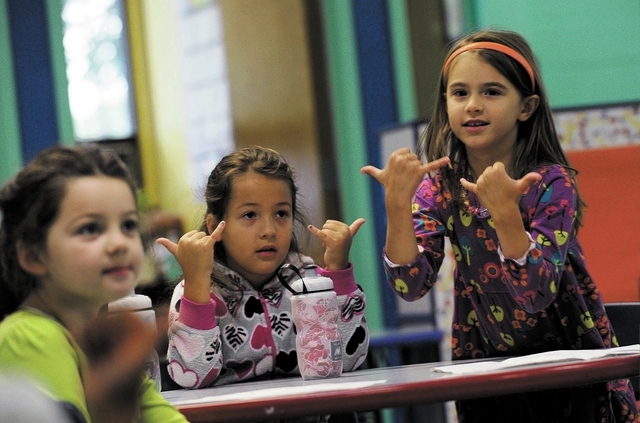Military signs up for home schooling

ANDREWS AIR FORCE BASE, Md. — A growing number of military parents want to end the age-old tradition of switching schools for their kids.
They’ve embraced home schooling and are finding support on bases, which are providing resources for families and opening their doors for home schooling cooperatives and other events.
“If there’s a military installation, there’s very likely home-schoolers there if you look,” said Nicole McGhee, 31, of Cameron, N.C., a mother of three with a husband stationed at North Carolina’s Fort Bragg who runs a Facebook site on military home schooling.
At Marine Corps Base Quantico in Virginia, the library held special presentations for home-schoolers on Benjamin Franklin and static electricity. Fort Bragg offers daytime taekwondo classes. Fort Belvoir, Va., has athletic events and a parent-led chemistry lab.
At Andrews Air Force Base about 15 miles outside Washington, more than 40 families participate on Wednesdays in a home schooling cooperative at the base’s youth center. This month, teenagers in one room warmed up for a mock audition. Younger kids downstairs learned to sign words such as “play” and searched for “Special Agent Stan” during a math game. Military moms taught each class.
There are also events outside the co-op, such as a planned camping trip for kids reading Jean Craighead’s “My Side of the Mountain.”
“Some weeks I wonder how my kids are going to do the school side of school because they are so busy socializing,” said Joanna Hemp, the co-op’s welcome coordinator.
Military families move on average nearly every three years. The transition can be tough for children, and home schooling can make it easier, advocates say. The children don’t have to adjust to a new teacher or worry that they’re behind because the new school’s curriculum is different.
Some military families also cite the same reasons for choosing home schooling as those in the civilian population: a desire to educate their kids in a religious environment, concern about the school environment, or to provide for a child with special needs.
Two 16-year-olds, Andrew Roberts and Christina Cagle, interviewed at the Andrews co-op say they are happy their parents made the decision to home-school them.
Roberts said he thinks he gets a lot more done in a school day than peers in a traditional school, and he sees his friends plenty at Bible study groups and during other social events with other teenagers on base.
“There’s not like a lot of peer pressure considering you’re mostly with your siblings and it’s kind of a relaxed environment,” Cagle said.
Participating military families say there’s an added bonus to home schooling. It allows them to schedule school time around the rigorous deployment, training and school schedules of the military member.
Sharon Moore, the education liaison at Andrews who helps parents with school-related matters, said at the height of the summer military moving season, she typically gets about 20 calls from families moving to the base with home schooling questions. She links them with families from the co-op and includes the home-schooled children during back-to-school events and other functions such as a trip to a planetarium.
“It comes down to they are military children and we love our military children,” said Moore, a former schoolteacher. “We recognize that they have unique needs that sometimes other children don’t have, and we want to make sure that we do our best to serve them and meet those needs because they have given so much to this country.”
This kind of support for home schooling by the military was uncommon in the 1990s, said Mike Donnelly, a former Army officer who is an attorney with the Home School Legal Defense Association, based in Purcellville, Va. He said that changed in 2002 with military-wide memo that said home schooling can be a “legitimate alternative form of education” for military member’s children. Most military bases today are friendly toward home-schoolers, he said.
Home schooling in recent decades has grown in popularity in the general population, with the most recent government statistics estimating that about 3 percent of school kids are home-schooled in America.
Within the military population, Donnelly said his group estimates that from 5 percent to 10 percent of military kids are home-schooled. An estimate by the Military Child Education Coalition, using very limited research data, estimated that up to 9 percent of military kids could be home-schooled.